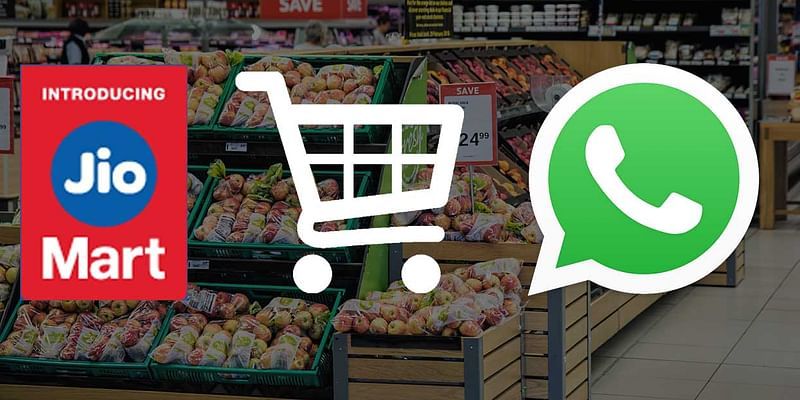The winning pitch - How Doodhwala founders tread the fine line between retaining equity and onboarding investors
The founders of hyperlocal delivery startup Doodhwala, who signed their term sheets during what they call ‘volatile times’, talk about their pitch to investors, and what works and what doesn’t.
When Aakash Agarwal and Ebrahim Akbari made their first pitch to a group of angel investors in December 2016, they had no idea what a good pitch entails.
“Since we had no idea of the response Doodhwala would receive, our nerves were on edge,” says Ebrahim. The team has raised over $3 million in funding so far, $2.2 million of which was from Omnivore in February.
Commenting on the investment then, Jinesh Shah, Founding Partner, Omnivore, had said, “The lean operating model, and the direct sourcing relationships that have been built made this company stand out amongst competitors.”
The duo had started Doodhwala in early 2015 when they experienced a gap themselves. Late one night in 2014, Aakash and Ebrahim were working on a business project, fuelling themselves with cereal, but soon found that they had run out of milk.

It was to ensure that milk gets delivered easily that the duo started Doodhwala in Bengaluru and soon in Pune. Doodhwala now does 18,000 deliveries a day and has grown five-fold in the past six months, with a 92-percent customer retention rate.
The platform offers users a wide selection of ad hoc everything, from fresh dairy milk, meat, vegetables, fruits to shelf stable items delivered to their door before seven in the morning every day. Users get the convenience of ordering on a subscription basis, which helps in frequent and easy purchases.
Waiting for the right time
The team had decided to look at fundraising only after close to two years of starting up. They strongly believed in the philosophy of 'raise only when you need to', which is ignored too often at an early stage of a business.
Ebrahim believes most founders raise funds too early and end up diluting a significant portion of their equity before the business establishes itself.
“A piece of advice I'd like to share is the adage 'less is more'. Your pitch should focus on 'what’, ‘how’ and ‘who'. Getting potential investors to understand and believe in the key offering is the focus,” he adds.
For the founders, it was crucial a potential deal did not negatively affect their equity holding. They had decided to defer seeking investments for some time, aiming to grow the business larger on their own first. Fifteen months later, when they finally raised the investment round, Doodhwala had grown over 10 times.
“Aakash and I retain over 80 percent of the equity even though Doodhwala is the largest milktech company at over 28,000 litres of delivery in a day, with a run rate of Rs 100 crore by the year-end. Having a sound cap table is particularly attractive to potential investors, for it greatly assists founders in later stages of their business.”
Taking the less harried route
On how they wooed Omnivore, Ebrahim recalls the time they met the investment team in Mumbai.
“Instead of a hurried pitch routine, we had a casual four-hour-long discussion on all facets of the business. It's important to remember that every investor looks for one thing - an eventual exit. Napoleon once said, ‘I base my calculation on the expectation that luck will be against me’,” he says.
When a team, like Doodhwala’s, routinely goes through every possible eventuality and formulates a path to success for each, its future-readiness becomes apparent to the investors, who are assured from the pitch of their possibility of a successful exit.
“The actual act of pitching is absolutely thrilling. Showcasing what you've built and getting it critiqued by seasoned investors is a process that helps every entrepreneur improve their business. On the other hand, seeking investment is a far more elaborate process,” says Ebrahim.
Applying the sales funnel
The Doodhwala founders applied the ‘sales funnel method’ where strategic relationship management is pivotal to securing the correct investors. They began with an elaborate lead list on the top of the funnel. It is important for founders too to be selective about the investors they are going to work with.
“As you filter them based on market fit and preference, they move down the funnel, and as you continue to organise subsequent partner meetings, they move further down the funnel, until you have a handful of venture capitalists who you've qualified and are ready to invest,” says Ebrahim.
In the early stage of a business, it's crucial to get the right investors on board, not just the right capital. They are essentially partners who will help steer the business in the right direction.
“A memory I hold fondly from the first pitch is what one angel investor said to me - ‘If I had to invest purely on the basis of your pitch, I would invest double of your ask amount’. I have learnt that if you understand your business and its implications well enough, pitching is easy. After all, you're conversing on a topic you know most about,” says Ebrahim.
Funding in difficult times
The hyperlocal segment has been on a tumultuous journey since its rise in the Indian startup ecosystem. In 2016, a large number of failed initiatives paired with a few strong success stories made it the most volatile segment.
Ebrahim believes, for Doodhwala, that situation was a double-edged sword. When the team felt it had matured for investment, the market had a slew of failed hyperlocal grocery businesses. There was a general wariness in the market and investors were reluctant to fund hyperlocal startups.
“Initially, it was a time when cash had flooded the hyperlocal grocery segment and companies with weak business models taking over the headlines. It was a test of the survival of the fittest. This difference between the market then and now is that only the players with a strong sustainable model have eventually prevailed. Doodhwala and a few of its competitors made it forward,” says Ebrahim.
The ‘milktech’ sector has three major players: Doodhwala, MilkBasket and Daily Ninja. Although there are minor differences in each model, each player has demonstrated a strong business premise and proof of concept.
“The future holds promising developments. We've led the online milk revolution until now with the largest sales, consumer outreach and geographical footprint. We've entered our next phase of rapid growth. It is our goal to ensure we continue to lead this sector in all the parameters. The second white revolution is on its way and we intend to define it,” concludes Ebrahim.











